
Thailand grapples with persistent educational disparities affecting 1.9 million vulnerable students, particularly in early childhood and secondary education — and this is only for the COVID-19 pandemic to have further exacerbated these challenges, pushing many students to the brink of educational exclusion. According to iSEE data from the Equitable Education Fund (EEF) Thailand, in 2022, Ratchaburi province reported 11,200 children lacking educational records, with 66%, 26%, and 8% in early childhood, primary, and secondary education respectively. Notably, Suan Phueng district revealed that 3,592 children aged 3-14, inclusive of 17-year-olds, had no educational data, while 7,650 were within the system, with some at risk of dropping out.

To address this, the EEF embarked on an unprecedented collaboration with Sansiri Public Company Limited, King Mongkut’s University of Technology Thonburi or KMUTT (Ratchaburi Campus), and the Ratchaburi Education Area Office (District 1) for the Zero Dropout project in Suan Phueng district, Ratchaburi province. In a groundbreaking move, Sansiri, for the first time in Asia, issued its corporate bonds worth 100 million Thai Baht in a bid to raise funds for the project. The initiative focuses on preventing dropouts by providing scholarships along with various measures, with special attention to Grade 6 and Grade 9 students.
In the initial three months, the EEF’s efforts centered on understanding the local contexts and establishing long-term networks. This involved analyzing extensive iSEE data, identifying specific issues at the student, teacher, and school levels, and categorizing potential dropouts into two key groups: high education costs, often exceeding household incomes, and perceived limited future benefits from continued education. To tackle these issues, urgent actions were taken to reduce education costs and promote flexible educational opportunities.
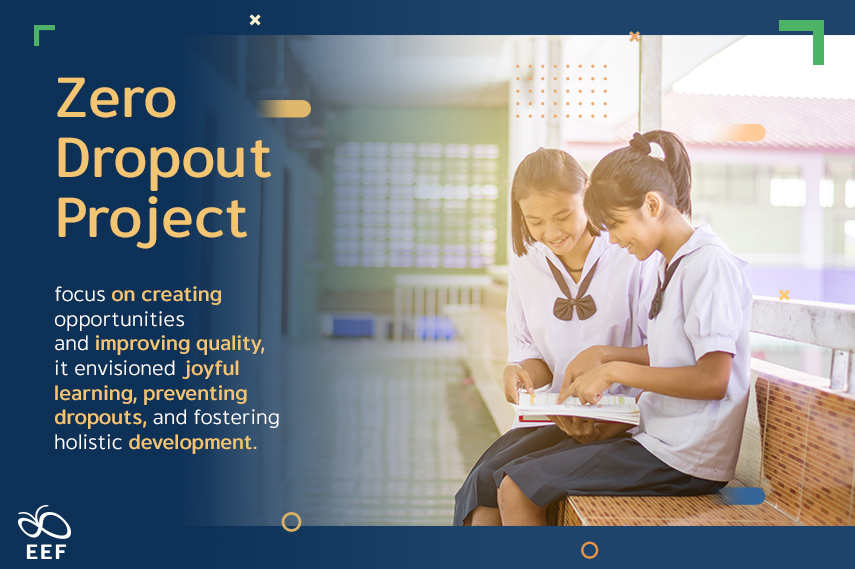
Through the Zero Dropout project, the EEF addressed educational disparities and enhanced educational quality right from early childhood. With a dual focus on creating opportunities and improving quality, it envisioned joyful learning, preventing dropouts, and fostering holistic development. Emphasizing teacher and school engagement, proactive measures, including home visits, were implemented to identify potential dropouts during term breaks, especially during key transitions like Grade 6 to Grade 7 and Grade 9 to Grade 10 or vocational education. As term breaks concluded, precise student numbers were determined for budget allocation. Grade 6 and Grade 9 students received financial support from Sansiri’s donation, with amounts of 1,000 and 3,000 Thai Baht, respectively, with around 80% (approximately 1,000) continuing their education at a higher level.
For sustainable success, the EEF closely collaborated with local academic institutions, particularly KMUTT (Ratchaburi Campus). Functioning as an academic partner in the area, the institution contributed not only to immediate problem-solving but also long-term strategic planning, establishing in-depth comprehensive databases for monitoring and support to prevent future dropouts. This involved designing assistance mechanisms and educational innovations tailored to the area’s specific needs and fostering community cooperation at various levels and fronts, all in alignment with the Area-Based Education (ABE) project, which serves as a cornerstone for jointly managing educational spaces, pursuing a continuous and long-term approach to address educational inequality.
Addressing nationwide educational inequality is of urgent imperative, necessitating concerted efforts — and the Zero Dropout project goes beyond its primary goal of minimizing dropouts in Ratchaburi down to zero within three years; it seeks to spotlight Thailand’s educational disparities. This entails catalyzing and mobilizing collective efforts across public, private, educational, local, and civil society sectors, including the general public, leveraging donations to ensure consistent access to quality education throughout the project’s duration.
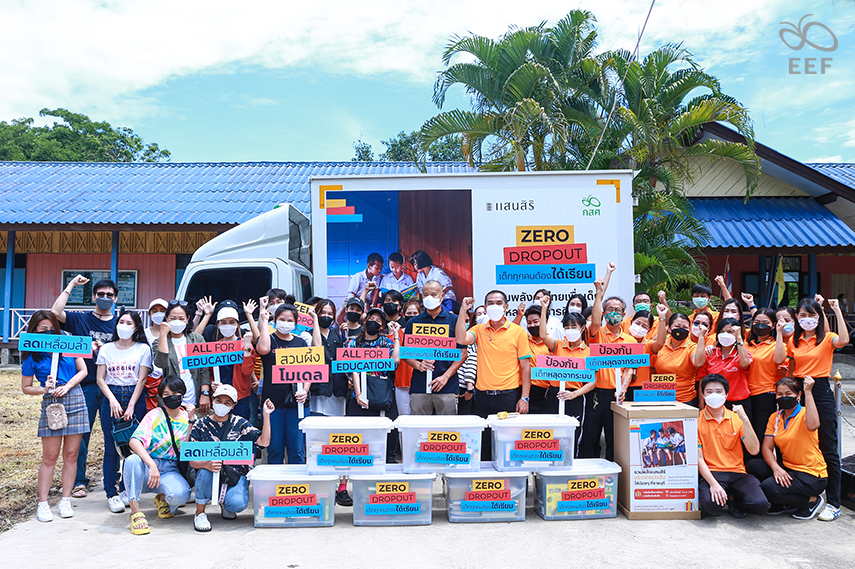
With over 1.9 million vulnerable children on the verge of dropping out, collaborative initiatives are pivotal. Sansiri’s substantial donation of 100 million Thai Baht exemplifies its dedication to tackling persistent educational challenges, serving as a catalyst for systemic change. The Suan Phueng Model, at the forefront of the Zero Dropout project, showcases synergy among the EEF, Sansiri, local authorities, and the general public, poised to become a replicable paradigm for addressing unequal access to education in other regions.
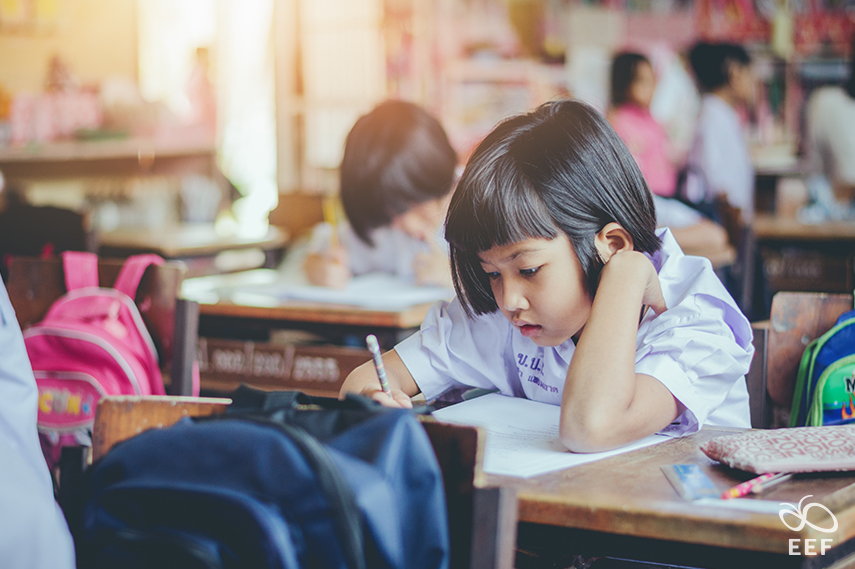
Beyond ensuring every child’s right to education, this seminal collaborative effort contributes to building a high-quality human resource pool for the future. A data linkage and transmission system has been established between schools and vocational education institutions, supporting opportunities at higher levels. With this system, the EEF can precisely track student statuses within the educational system, identify and develop assistance strategies for at-risk students on the verge of dropping out, and alleviate education-related expenses, thereby ensuring that students in these groups do not fall out of the educational system through the Conditional Cash Transfer (CCT) project. This not only influences the current generation but also has sustainable, long-term effects on future generations.
Moreover, a volunteer mechanism spanning three sectors — public, private, and local — has been implemented to mitigate educational disparities. These volunteers act as knowledge bridges, addressing health, rights protection, welfare, and education. The initiative is advancing toward the innovation of “1 School 3 Systems,” promoting flexible learning for underprivileged and marginalized children and youth beyond the traditional educational system.
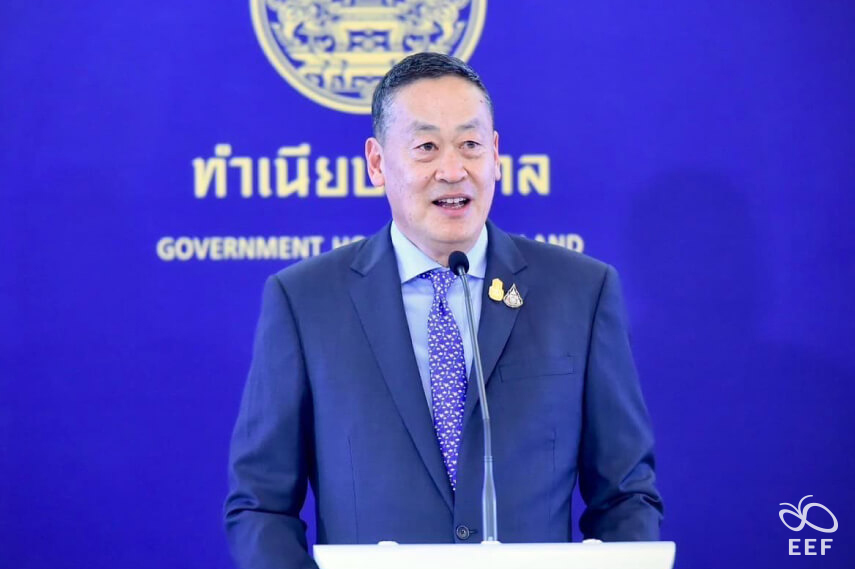
On January 10th, 2024, Prime Minister and Minister of Finance Srettha Thavisin took to both X (formerly Twitter) and Facebook to emphasize the imperative need for every child, the future of the nation, to receive an education. The Prime Minister personally spearheaded the campaign to address educational disparities long before assuming office. His vision has been to ensure equal opportunities for Thai children in education, with a clear goal of reducing the number of dropouts to zero. Upon assuming office, he immediately directed the EEF, the Ministry of Digital Economy and Society (DES), and the Ministry of Education to coordinate forces to compile a comprehensive dataset of students who have dropped out of the educational system, which has become Thailand’s first Big Data database.
This monumental step serves as a foundation to aid children and youth who find themselves outside the education system, a significant stride towards achieving “Thailand Zero Dropout.” The announcement signifies a crucial milestone in the country’s commitment to providing equal educational opportunities, reinforcing the Prime Minister’s dedication to realizing a future where no child is left behind in education.
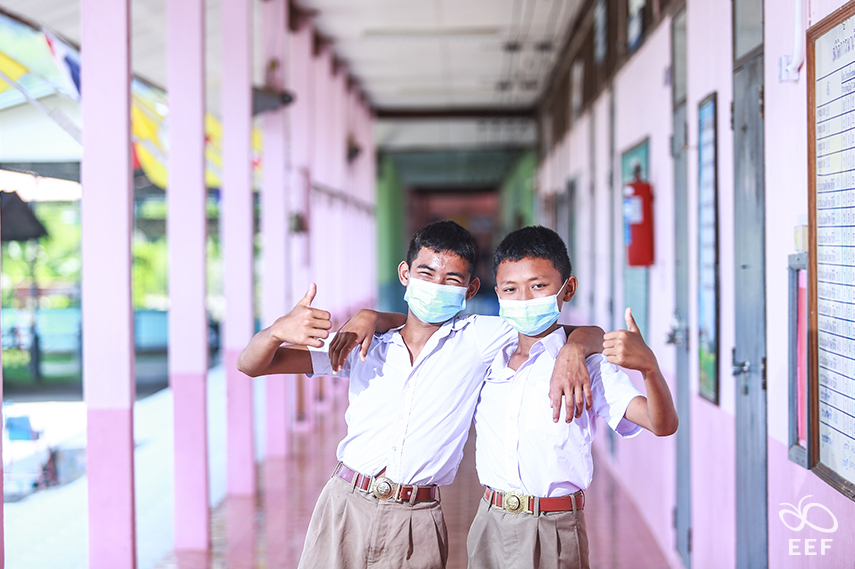
In the relentless pursuit of eradicating educational disparities, the Zero Dropout project emerges as a beacon of hope for Thailand’s vulnerable students. Spearheaded by the Equitable Education Fund (EEF) Thailand, Sansiri, and academic institutions like KMUTT, this groundbreaking initiative not only prevents dropouts but envisions a future of joyful learning and holistic development. The collaborative efforts extend beyond Ratchaburi, aiming to raise awareness and drive collective action nationwide. Sansiri’s significant donation reflects a commitment to systemic change, positioning the “Suan Phueng Model” as a transformative paradigm for equal access to education, fostering a high-quality human resource pool, and paving the way for a brighter future, perfectly encapsulating the mission of the EEF, which is to reduce education inequality through research, collaboration, and support for children, youth, and adults in need.

